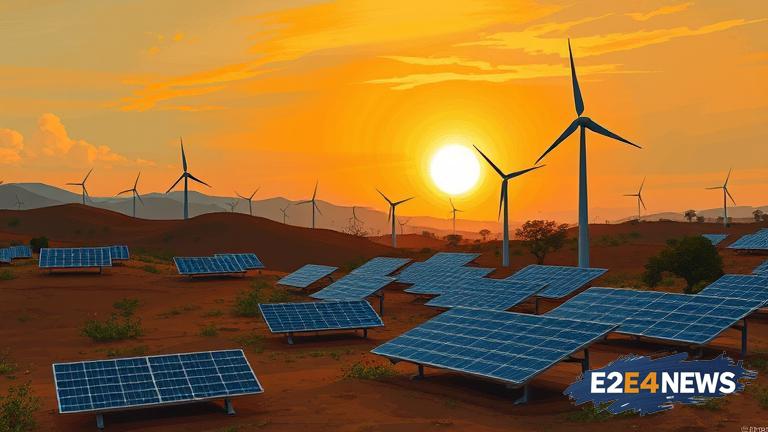The African continent is witnessing a significant shift towards renewable energy, driven by the need to address the pressing issues of energy access, climate change, and sustainable development. With many countries still struggling to provide reliable and affordable electricity to their citizens, renewable energy has emerged as a viable solution. Solar and wind power are leading the charge, with countries like South Africa, Egypt, and Morocco investing heavily in these sectors. The African Renewable Energy Initiative, launched in 2015, aims to achieve at least 300 GW of renewable energy capacity by 2030. This ambitious target is expected to create new opportunities for economic growth, job creation, and poverty reduction. In South Africa, the Renewable Energy Independent Power Producer Procurement (REIPPP) program has been instrumental in promoting private sector investment in the sector. The program has already led to the development of several large-scale solar and wind farms, with many more in the pipeline. Egypt, on the other hand, has set a target of generating 20% of its electricity from renewable sources by 2022. The country has made significant progress in this regard, with the inauguration of the Benban Solar Park, one of the largest solar parks in the world. Morocco has also been at the forefront of the renewable energy revolution, with a focus on solar and wind power. The country’s ambitious plan to generate 52% of its electricity from renewable sources by 2030 is expected to reduce its dependence on fossil fuels and lower greenhouse gas emissions. Other African countries, such as Kenya, Tanzania, and Ghana, are also making significant strides in the renewable energy sector. Kenya’s Lake Turkana Wind Power project, for example, is one of the largest wind farms in Africa, generating enough electricity to power over 300,000 homes. Tanzania has also launched several renewable energy projects, including the Singida Wind Farm, which is expected to generate 100 MW of electricity. Ghana, meanwhile, has set a target of generating 10% of its electricity from renewable sources by 2030. The growth of the renewable energy sector in Africa is expected to have a positive impact on the environment, reducing greenhouse gas emissions and mitigating the effects of climate change. It will also create new job opportunities, stimulate local economies, and improve energy access for millions of people. However, the sector still faces several challenges, including lack of financing, inadequate infrastructure, and regulatory frameworks. To overcome these challenges, African countries will need to work together, sharing knowledge, expertise, and resources to create a more sustainable and prosperous future. The private sector will also play a critical role, investing in renewable energy projects and providing the necessary financing to support the growth of the sector. International cooperation will also be essential, with developed countries providing technical and financial assistance to support the development of renewable energy in Africa. In conclusion, the renewable energy revolution in Africa is gaining momentum, driven by the need to address the pressing issues of energy access, climate change, and sustainable development. With the right policies, investments, and international cooperation, the continent can unlock its vast renewable energy potential, creating a more sustainable and prosperous future for generations to come.
